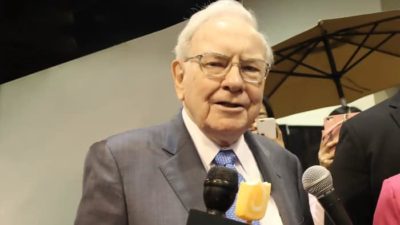This article was originally published on Fool.com. All figures quoted in US dollars unless otherwise stated.
A new survey suggests that the honeymoon may be over for streaming video names like Walt Disney (NYSE: DIS) and Netflix (NASDAQ: NFLX). Although consumers were briefly enamored with on-demand video that made the pandemic's lockdowns at least bearable, there are indications they're now falling out of love with most of these platforms. The recently published telecommunication and media-services satisfaction report from American Customer Satisfaction Index LLC indicates a marked downturn in customer satisfaction for these entertainment services. It's not the end of the world -- at least not yet. But, the timing of the downturn is telling. It materialized at a point when consumers had time to think about optimizing their entertainment budgets, and after a swell of new streaming competitors facilitated plenty of comparison shopping. The suppressed satisfaction scores suggest something much bigger may be underway. That something is the end of easy, huge growth in streaming subscriber bases.A surprising step back
The survey in question spans from April of last year through March of this year, capturing the pandemic in its entirety. For the 12-month stretch in question, American Customer Satisfaction Index says U.S. consumers' collective satisfaction with their streaming services fell 2.6%, from a score of 76 to 74. It's a seemingly insignificant pullback in the grand scheme of things. But, its significance is made clearer in light of 2020's stagnation, following 2019's 1.3% uptick from 75 to 76. Satisfaction went from improving to worsening in just the same couple of years that saw the advent of Disney+ and AT&T's (NYSE: T) HBO Max, as well as stepped-up streaming efforts from Apple (NASDAQ: AAPL) and ViacomCBS (NASDAQ: VIAC) (NASDAQ: VIAC.A). Perhaps more alarming is the list of names that led the charge lower. Netflix and Apple's TV app both slumped 4% from their 2020 scores, while Disney+, Disney's Hulu, Amazon (NASDAQ: AMZN) Prime, CBS All Access (now Paramount+), and Apple TV+ all tumbled 3%; these are supposed to be the best of the best. No service improved by more than 1%. The American Customer Satisfaction Index survey indicates the sheer number of TV shows and the variety of movies available to them -- or lack thereof -- were the top two reasons satisfaction declined for the year-long span. Though the report didn't spell it out, studies and streamers are building and filling their own silos. Rather than licensing shows and movies to Netflix, for instance, AT&T's WarnerMedia and Walt Disney are now offering their programming exclusively on their own distribution platforms. Ditto for Comcast's (NASDAQ: CMCSA) NBCUniversal, which launched its ad-supported streaming service Peacock in July of last year. Consumers appear to be noticing. Less theorized but still worth considering is the fact that consumers were afforded a great deal of time to engage with their subscription-based services while exploring alternatives. Viewing research outfit Nielsen reports that as of the end of last year's Q2, the average household was streaming 142.5 minutes worth of content per week, up 74% from the year-earlier comparison of 81.7 minutes. Consumers clearly found something they wanted to watch, but when forced to hunt for additional entertainment, they may have learned their available content libraries weren't as relevant as previously hoped. Most plausibly, last year's waning satisfaction is a reflection of both factors. Regardless of the reasons, consumers are clearly less impressed now than they were just a year earlier with the entire streaming media industry.Connecting the dots
As was noted, it's not yet a reason to panic. All of the major services still have sizable customer bases, and all still have the ability to grow. The changing sentiment does underscore the idea, however, that there's a limit to how many consumers are ready to tack on and then maintain yet another monthly subscription. The easy-to-win subscribers are already on board; the next ones could be much tougher to garner. In this vein, while Netflix's subscriber base of 208 million is still the industry's biggest headcount, its addition of only 4 million paying customers in the first quarter was a disappointment. Even more concerning is its call for subscriber growth of only 1 million members for the three-month span ending this month. If this is a hint of what lies ahead for other streamers -- and it is -- this means more promotional dollars may be needed. At the same time, streaming platforms need to focus on curbing attrition (or churn) more than they ever have in the past. It's a challenge for all players, but it's a particular problem for Netflix which has historically demonstrated the lowest churn rates in all of streamingdom. It's a risk to Netflix shareholders simply because the company's never faced this much of a retention/net-growth hurdle before.This article was originally published on Fool.com. All figures quoted in US dollars unless otherwise stated.









